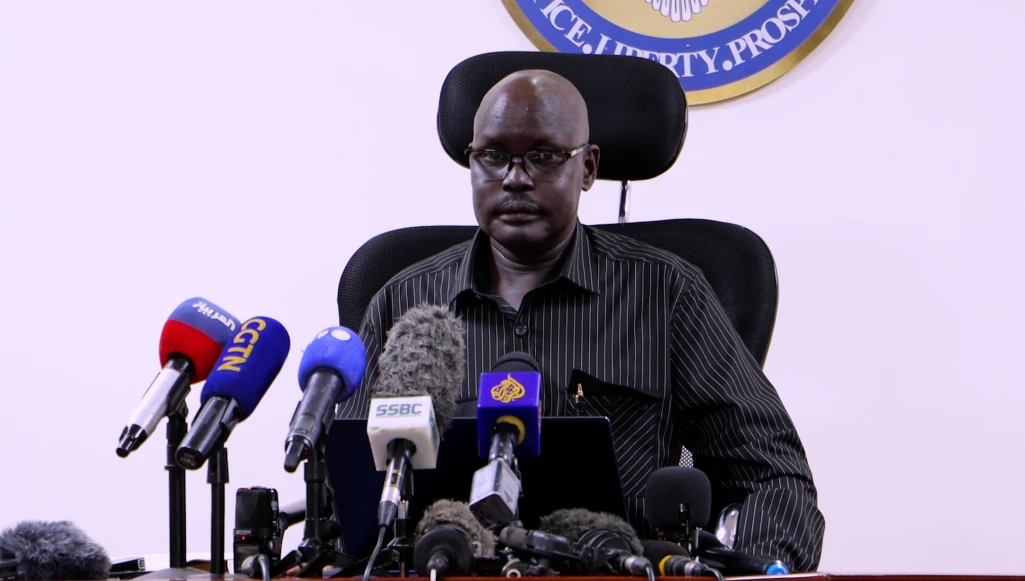
The Office of the President has denied the assertion that
President Salva Kiir instructed Raila Odinga to seek consent from Museveni to
meet with First Vice President Dr. Riek Machar, who is now under house arrest.
Dr. Machar's detention has exacerbated concerns regarding
the stability of the peace agreement in Juba.
As a result, the heads of state in IGAD sent former Kenyan
Prime Minister Raila Odinga to South Sudan as a special envoy to try to ease
tensions by mediating peace between Kiir and Machar.
Upon Raila’s arrival on Friday, he met President Kiir but
said in a statement to media in Kenya on Saturday that he was denied access to
meet Dr. Machar and was instead sent to Ugandan President Yoweri Kaguta
Museveni.
“I asked to be allowed to talk to Dr. Machar, but they were
not able to let me see him. They recommended that I meet with [Ugandan]
President Yoweri Museveni, which I did. From Juba, I then proceeded to
Entebbe,” Odinga said.
However, the president's press secretary, David Amuor Majur,
denied Raila Odinga's claim, stating that President Kiir did not send Raila to
meet Museveni.
“The suggestion that His Excellency General Salva Kiir
Mayardit, President of the Republic of South Sudan, requested Right Honorable
Raila Odinga to meet with the President of Uganda is misrepresenting diplomatic
norms and principles,” Amuor said.
“The Right Honorable Odinga’s mission to Uganda was
pre-arranged. Nobody has sent him to go and talk to President Museveni.”
In his role as IGAD special envoy to South Sudan, Amuor said
Raila would tell the presidents of Uganda, Ethiopia, and Djibouti about what
happened at his meeting with President Kiir.
Nevertheless, the press secretary admitted that Raila was
denied access to see Machar by President Kiir but promised him access to Machar
after briefing all the IGAD heads of state.
“Raila asked to meet Machar, but President Kiir's reply was
that the first vice president 'is under investigation' and promised him that
'Next time when you come after consultation with the rest of the member states,
you may find a chance to meet and talk to him,'" he said.
Raila's job was to calm things down after Machar was
arrested and try to get Kiir and Machar to talk so that the peace agreement
could be saved, and the country wouldn't go back to civil war.
The South Sudan Revitalized Transitional Government of
National Unity (R-TGoNU), which made Dr. Machar the first vice president,
derives its legitimacy from the fragile 2018 peace agreement that ended the
five-year civil war.
Attempts to remove Machar from the system threaten the
collapse of the deal and undermine the government’s legitimacy.
South Sudan, the world’s youngest nation, plunged into
conflict in 2013, just two years after gaining independence from Sudan on July
9, 2011.
Fragmented rebellions, along with ethnic and communal
violence, have since plagued the country, hindering peace efforts and stalling
economic and infrastructural development.
Fourteen years after independence, the country continues to struggle with stability, with national elections now scheduled for December 2026, provided the peace agreement holds.